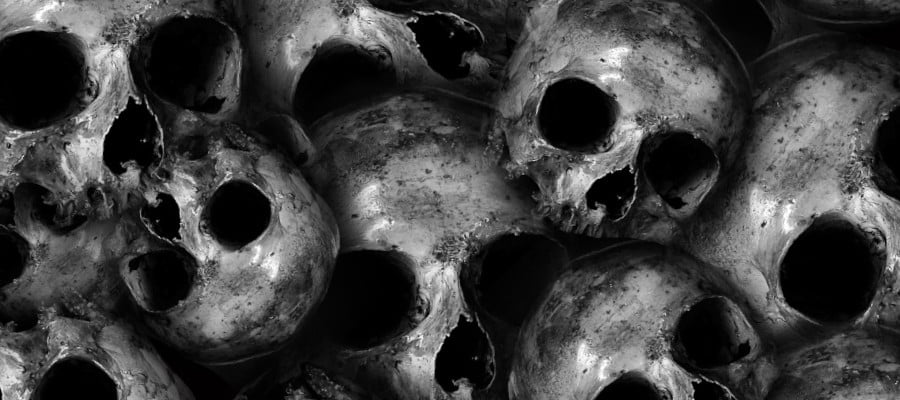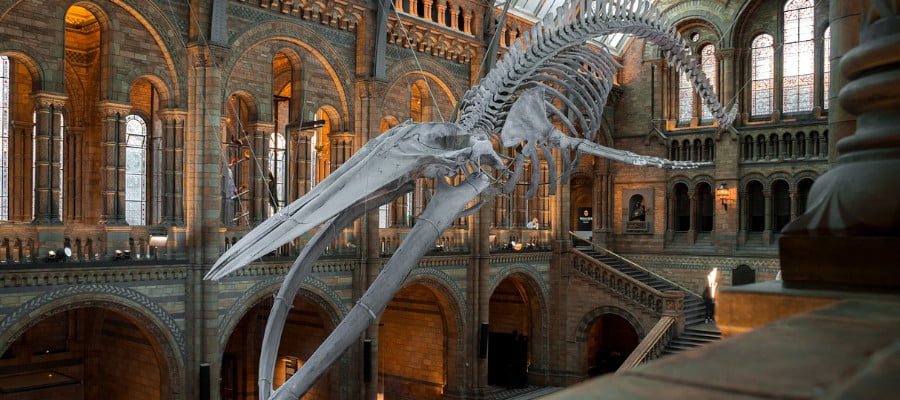Hey have I talked about the Locked Tomb this month?
Oh yeah I wrote about Nona the Ninth.
Oh well I figure that means you’re used to it by now. Let’s talk about souls and brains and bodies and minds. It’s going to feature spoilers for every book in the series so this is your jump out point. Okay? Okay. Okay!
Hey, first up, what’s mind-body dualism? It’s this notion, in philosophy, that the mind is a thing and the body is a thing and that while those things can communicate with one another they are not separated things. The mind is the passenger of the body, but it can exist (hypothetically) without it, and the body can exist (hypothetically) without a mind. This kind of dualism is really commonly visualised in a lot of religious media and text, with the idea that we may die, but our souls escape to another life without a body. Some even advance this idea further that we have a mind (our intellectual reasoning and memory), a body (the trolley that the others are stuck in), and a soul (the emotional core, something deeper than thinking).
This particular set of thinking is entirely philosophical and projective; the phenomena that is you, thinking, can think about how it doesn’t seem to feel like it’s thinking but just existing, and therefore, it’s a reasonable assumption to make that it is independent of the body that exists, even though that body contains the brain. The brain is, as best we have been able to test it, the thing creating the phenomenon of a mind, and that means that if mind and body aren’t linked, then the brain is doing a really good job of pretending that it can influence the mind.
I’m not here to dismiss anyone who does firmly believe in mind-body dualism, I’m just trying to give a basic rundown of what it means. The idea that there is a body, which does body things and maintains itself, and the body can report to the mind, and there is a mind, which does mind things, and maintains itself, and can report to the body. If your body doesn’t do what your mind tells it to do, that’s a failure of communication, and vice versa. The mind can ignore the body and the body can ignore the mind.
(I know there are some Decartesian philosophy students just so mad reading this text, and I’m sorry, I’m simplifying.)
That’s our basics, now how does it apply to The Locked Tomb?
The Locked Tomb does explicitly present a world in which there is an element of the human (and all living things, really) that transcends the operation of the body and persists after it, which is capable of reason and function, which is the soul. Souls can be transferred, souls can be controlled, souls can be bid and souls can even be reconstructed, but they are crucially, the person. The ghost of Sex Pal is Sex Pal, even if he’s stuck in a bubble in a Bubble on the Wrong Side Of The Riiiver,
and he can be reattached to the entity that is his body, at some point.
(Well, he wasn’t, but you know what I mean.)
There’s much fuss made about getting the body of someone, their actual body from someplace, with the actual body of Harrow and the actual body of Gideon being important plot points. Kiriona’s body, reconstructed by Jod, is a body that holds her soul, but is it her body? Bodies are important. Bodies have bone, but more importantly, bodies have blood. The blood of Jod is an important plot point, so it stands to reason that the body of Gideon is fundamentally important in this way.
There’s ambiguity about whether the Resurrection Beasts, the true heroes of the story, are physical objects or just stonking great big ghosts – there’s talk made about things they make having material presence that can be used as weapons, for example, and they respond to gravity (kinda?) by being slurped into a black hole (which, y’know, if they’re nonmaterial, might not kill them even if they can’t escape it.
Anyway, in The Locked Tomb souls exist.
But are they properly dualistic?
In Harrow The Ninth, Harrow makes a part of her skull jab part of her brain to reprogram that brain’s experience of the world and her perceptions, to try and forget Ortus Nav. It’s so thorough a process that when she does it, it alters her perceptions of other people’s saying of words – words that don’t wind up with their lips. Her memories and her ability to process new, incoming information in the world, and the construction of those memories, is deformed by, for lack of a better term, bits of her skull jabbing into her brain in response to commands set up earlier by a very smart necromancer (her) in order to suppress experiencing the name Ortus.
In the river, Harrow is a consciousness capable of experiences, including the experiences of having a body (and what a body, in the context, things get weird at this point in the story). In this context, Harrow is able to form new memories and engage with the experiences of Gideon, without the brain jabbery.
Okay, so what does this mean for body-mind dualism?
Iiii dunno.
I started out thinking that this was a really cool element of The Locked Tomb where souls and bodies weren’t dualistic, that there was a willingness in the narrative to examine the way that bodies and minds were entangled. Like, the soul is enslaved to the body as the body is enslaved to the mind, and disrupting that is part of what nercomancers are doing (and part of why they’re bad). Then things got complicated when I dug into it.
Nona The Ninth is about a soul and a body entangling with one another and not working, and two souls entangling and forming a synthesis. Bodies and minds not lining up is a known thing, in our own world — you might have heard of it as dismorphia and dysphoria, two different effects. It can look, at a glance, like The Locked Tomb is a world with true dualism. Souls can do their own thing and the body that they’re in just has to put up with it. See Pyrrha and Ortus the First’s situation, for example.
But then there’s the other thing, and this involves looking into some paratext. Harrow is schizophrenic, as stated (indirectly) by Muir. This involves hearing voices, and having illusionary experiences, which she indicates she still has when she’s in the River, not attached to her body. This implies that Harrow’s soul has schizophrenia, even though we also see later on, a description of Harrow’s brain by Mercymorn (or is it in one of the side stories? I can’t check right now) that indicates buildup in brain regions that is medically indicative of schizophrenia). But then, complicating that is that Harrow is also in that point, haunted by a ghost that hates her guts (it’s always embarrassing when you meet your girlfriend’s family and they don’t like you), and that ghost might be giving her illusionary feedback that simulates the experiences of schizophrenia, and she might just be so used to that from her body’s schizophrenia to go: Huh, yeah, that’s that again. Basically, Harrow’s soul might not be affected by her body, but her mind is also used to being affected by her body, so it creates the effects out of habit or dismisses anything similar as she assumes she is still having the experience of her body.
In the end, I don’t have an answer. I think that body-mind dualism is a very protestant idea, and I don’t tend to like it, so when I thought I was seeing a dismantling of it in The Locked Tomb, I thought ‘oh dang, that’s cool.’
Maybe!
Maybe not.
I like the way this text presents options for this kind of grappling.



